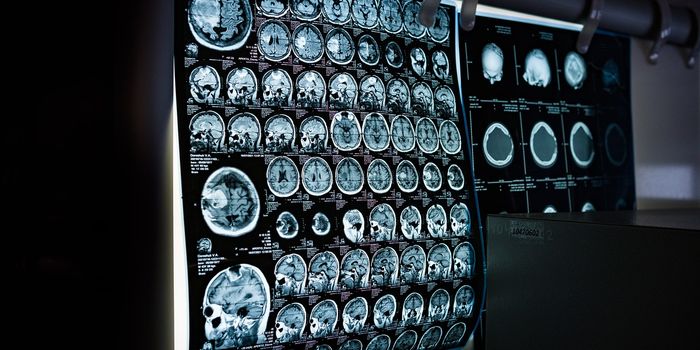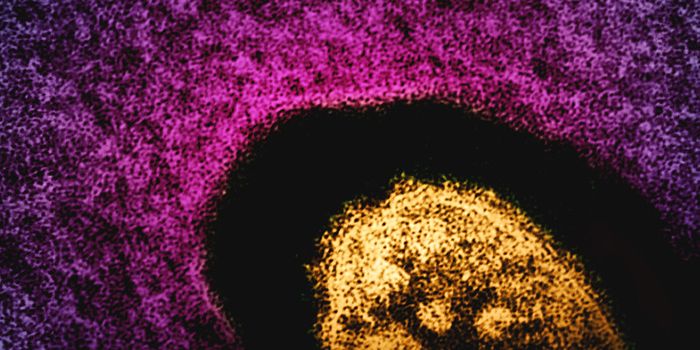Are Bacteria Fighting Cancer For Us?
Image: Human cells visualized with indirect immunofluorescent microscopy. The nucleus is in blue, microtubules are in red, and the RNF5 protein is in green.
Scientists at the Sanford Burnham Prebys Medical Discovery Institute found that the RNF5 enzyme, produced by a gene in gut microbes affects tumor growth. The group was working malignant melanoma in mice, and observed that the tumors in the mice with a non-functional RNF5 gene grew slower than those who had an active copy of the RNF5 gene. They also found that RNF5 knockout-mice who shared a cage with wildtype mice exchanged gut microbes, resulting in regained bacteria with the RNF5 gene and lost their cancer-fighting advantage.
In almost 100 people, the researchers found that people with less RNF5 protein benefited more from treatment targetting cellular checkpoints. This exciting finding published in Nature is supported by other results that show a correlation between gut population and diversity. The paper sites eleven bacterial species that lack the RNF5 gene, but are outcompeted by bacteria with the RNF5 gene, making the presence of these eleven species noteworthy. However, the bacterial species sited in the paper did not match with previous publications.
Image: Human cells visualized with indirect immunofluorescent microscopy. The nucleus is in blue, microtubules are in red, and the RNF5 protein is in green.
RNF5 gene produces the RNF5 regulatory enzyme, which ligates cells to the extracellular matrix of other cells. The RNF5 enzyme engages in protein-protein interactions to move and attach cells in new locations. Cells may need to be moved and reattached to disperse healthy cells to replace dead cells or bring together cells that may need to communicate with each other.
Given the number of known and unknown gut microbes, a new approach to making sense of their effect of cancer treatment is to study the cellular pathways that the bacteria change. Though the immune system does it's best to find and eliminate abnormal cell growth, abnormalities are sometimes missed, which is how a tumor begins. It is believed that gut microbes assist in cancer prevention by raising the immune system's sensitivity to abnormal growth.
Sources: Nature, Drug Target Review, Science Daily, Cell Atlas (images)










